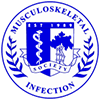Authors: Jafari SM, Chakravarty R, Coyle C, Mortazavi J, Sharkey P, Parvizi J, Rothman Institute, Philadelphia, PA
Title: Revision Total Hip Arthroplasty: Infection is the Major Cause of Failure
Purpose: The objective of this study was to determine the mechanisms of failure after revision total hip replacement.
Methods: Between January 2000 and December 2006, 1,392 revision THAs were performed at our institution. There were 536 (42.6%) men and 723 (57.4%) women with a mean age of 66 years (range, 24-94 years).The clinical and radiographic records of these patients were reviewed in detail to extract relevant information.
Results: There were 739 (53%) right and 653 (47%) left revisions. Seven patients underwent bilateral revision hip replacement. At a mean follow-up of 5.5 years (range, 2-9 years), 230 (16.5%) of the revisions failed. Mean time to failure after the index procedure was 16.6 months (range, 1 day to 7.5 years). Infection was the major cause of failure (32.5 %) followed by instability (26.1 %) and aseptic loosening (21.6 %). Other causes were periprosthetic fracture (15.1%) component failure (3.0%), and osteolysis and/or wear (1.7%).
Discuassion and Conclusion: The cause of failure following revision THA seems to have changed over the last decades with infection becoming the most major cause. One-third of the failures in our study were attributable to infection. This finding, that differs from that in the literature, highlight the importance of implementing better preventative methods to minimize the impact of infection as the most dreaded cause of failure.

